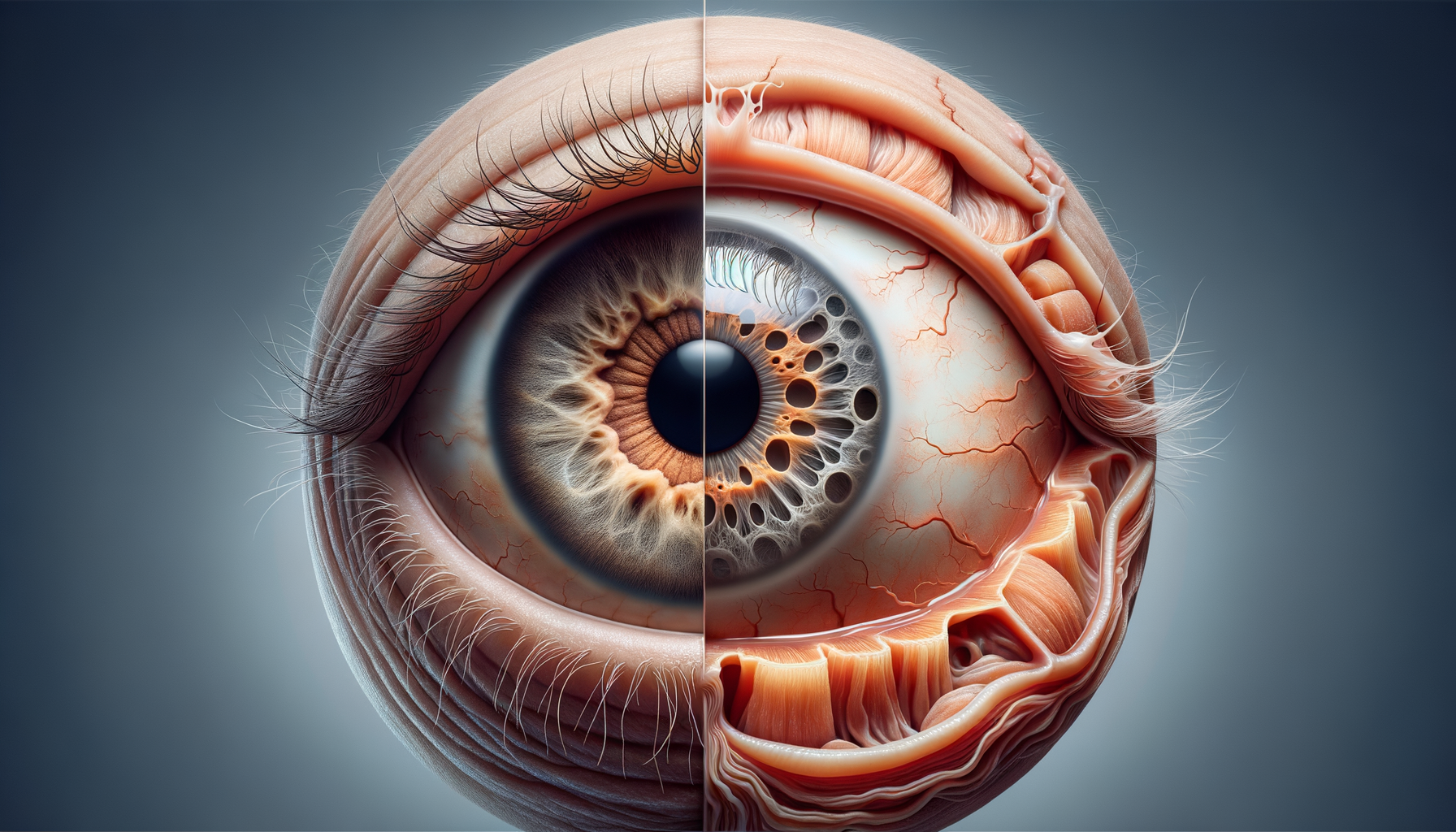Understanding Macular Degeneration
Macular degeneration is a prevalent eye condition that primarily affects older adults, leading to a gradual loss of central vision. This condition occurs when the macula, a small part of the retina responsible for sharp, detailed vision, deteriorates. There are two main types of macular degeneration: dry and wet. Dry macular degeneration is more common, accounting for about 80% of cases. It progresses slowly and is characterized by the thinning of the macula. In contrast, wet macular degeneration is less common but more severe, leading to faster vision loss due to abnormal blood vessel growth under the retina.
The significance of understanding macular degeneration lies in its impact on daily life. As central vision deteriorates, tasks such as reading, driving, and recognizing faces become challenging. While peripheral vision remains unaffected, the loss of central vision can significantly affect an individual’s quality of life. Early detection and management are crucial in slowing the progression of this condition and preserving vision.
Causes and Risk Factors
Several factors contribute to the development of macular degeneration. Age is the most significant risk factor, with the likelihood of developing the condition increasing after the age of 50. Genetics also play a crucial role, as individuals with a family history of macular degeneration are at a higher risk. Additionally, lifestyle factors such as smoking, obesity, and poor diet can increase the risk of developing this eye condition.
Environmental factors, including prolonged exposure to ultraviolet light and a high-fat diet, are also associated with an increased risk. Understanding these risk factors is essential for prevention and management. For instance, adopting a healthy lifestyle by quitting smoking, maintaining a balanced diet rich in leafy greens and omega-3 fatty acids, and protecting the eyes from excessive sunlight can help reduce the risk of macular degeneration.
Symptoms and Diagnosis
Macular degeneration often presents with subtle symptoms that may go unnoticed in the early stages. Common symptoms include blurred or distorted vision, difficulty recognizing faces, and a dark or empty area in the center of vision. As the condition progresses, these symptoms become more pronounced, severely affecting daily activities.
Diagnosing macular degeneration involves a comprehensive eye examination. An ophthalmologist may use several tests, including a visual acuity test, dilated eye exam, and imaging tests like optical coherence tomography (OCT) to assess the retina’s condition. Early diagnosis is vital, as it allows for timely intervention and management to slow the progression of the disease.
Treatment Options
While there is no cure for macular degeneration, several treatment options can help manage the condition and preserve vision. For dry macular degeneration, nutritional supplements containing vitamins C, E, zinc, and copper may slow progression in some cases. Additionally, adopting a healthy lifestyle with a diet rich in antioxidants and omega-3 fatty acids can support eye health.
For wet macular degeneration, treatments focus on inhibiting abnormal blood vessel growth. Anti-VEGF (vascular endothelial growth factor) injections are commonly used to reduce fluid leakage and slow vision loss. Laser therapy and photodynamic therapy are also options for some patients. Collaborating with an eye care professional to determine the most suitable treatment plan is crucial for effective management.
Living with Macular Degeneration
Living with macular degeneration requires adjustments and coping strategies to maintain independence and quality of life. Vision rehabilitation programs can provide valuable resources and training to help individuals adapt to vision changes. Utilizing magnifying devices, special reading glasses, and electronic aids can enhance visual capabilities for daily tasks.
Support groups and counseling services are also beneficial, offering emotional support and practical advice. Staying informed about the latest research and treatment advancements is essential for individuals and their families. By taking proactive steps and seeking appropriate support, those affected by macular degeneration can lead fulfilling lives despite the challenges posed by vision loss.








